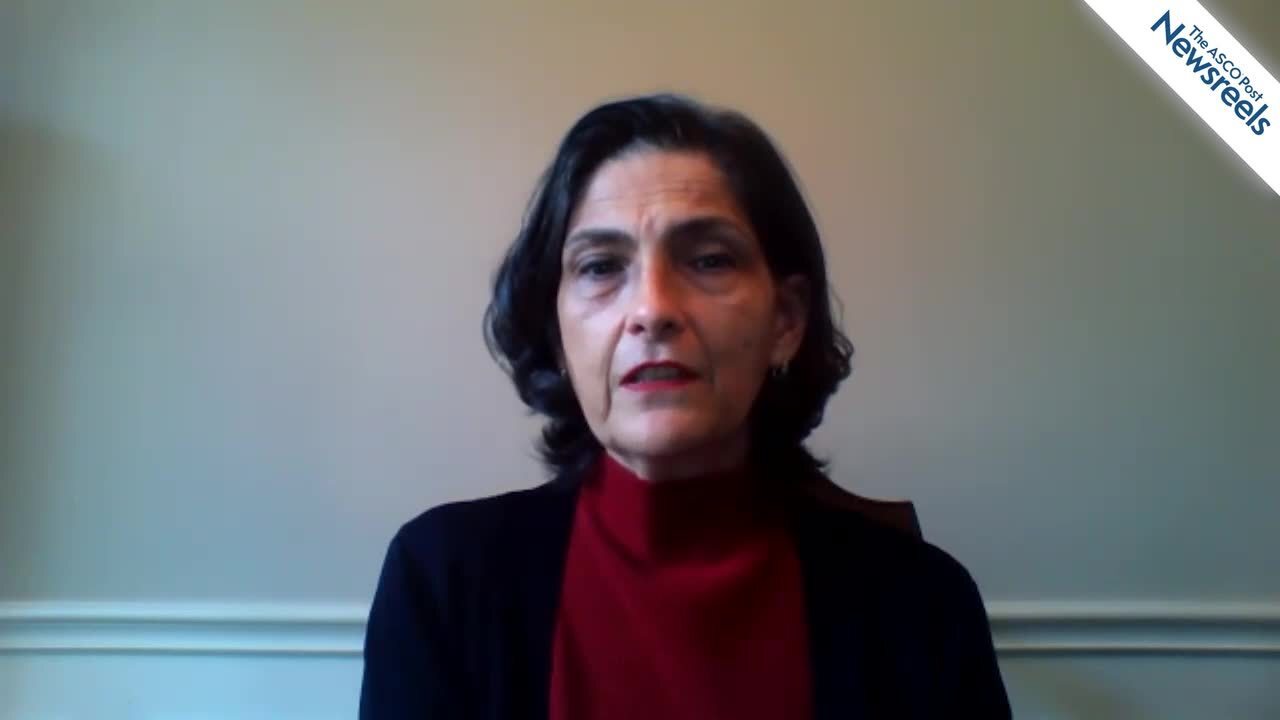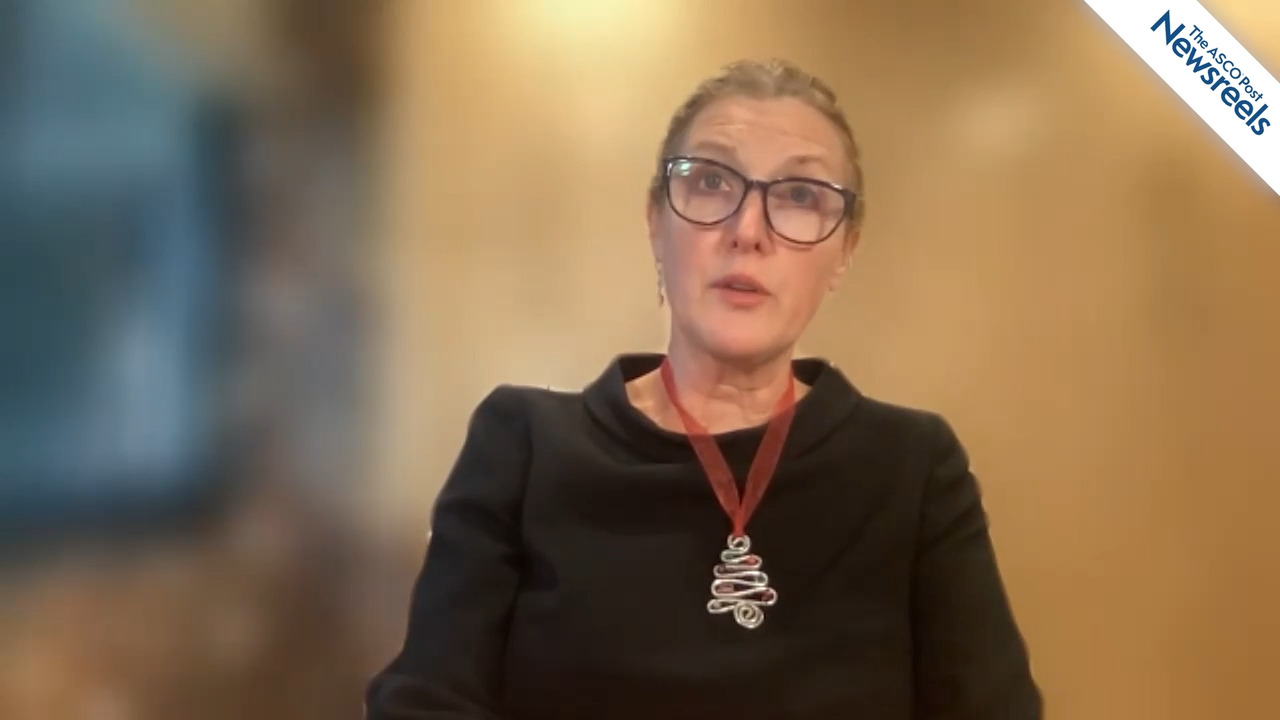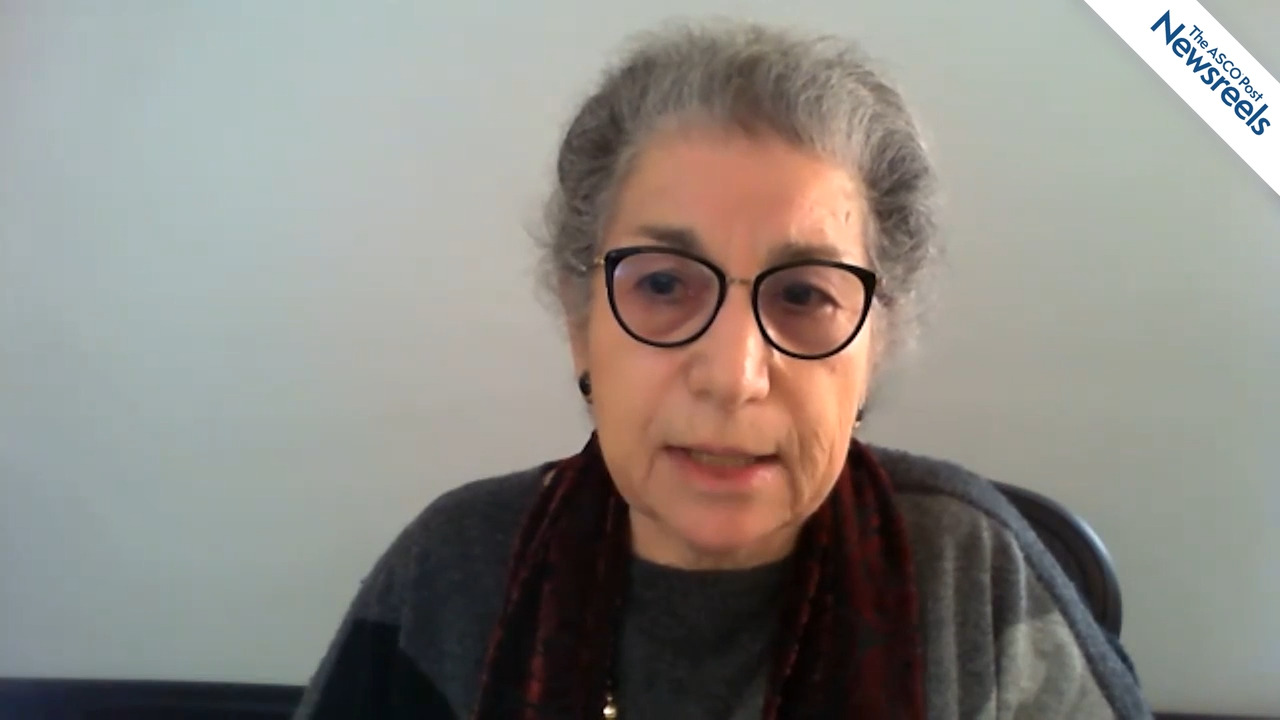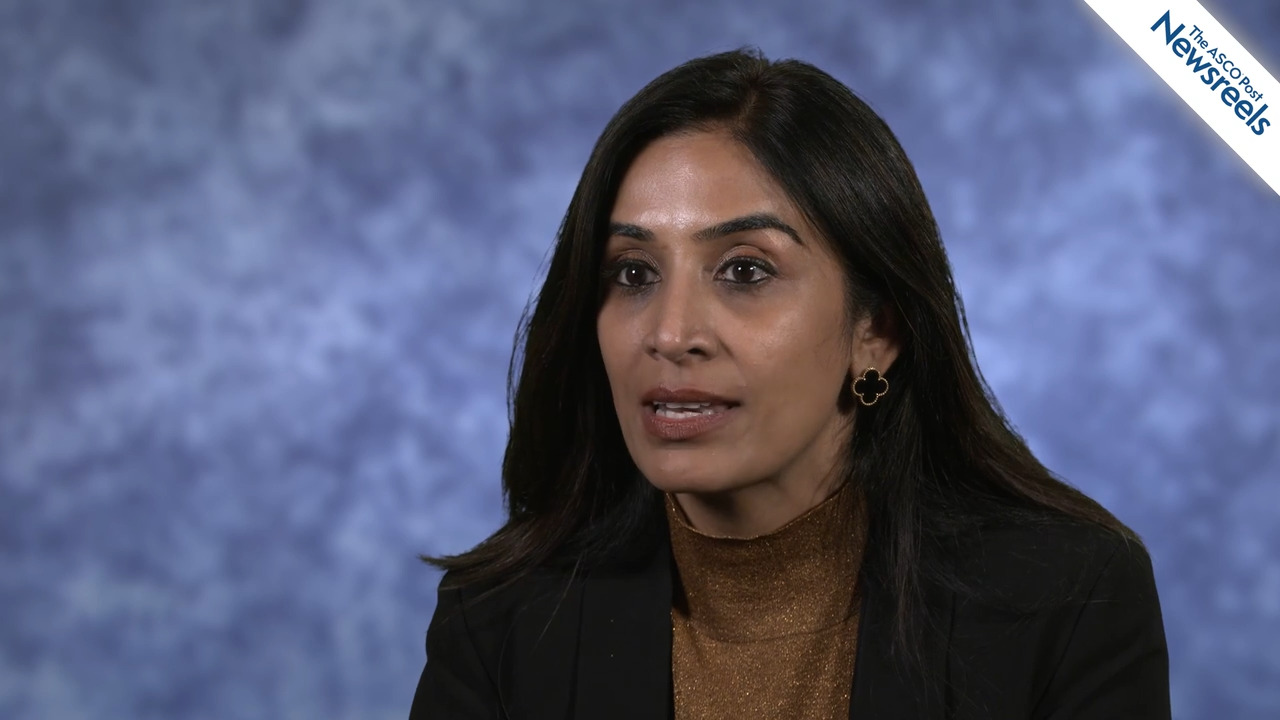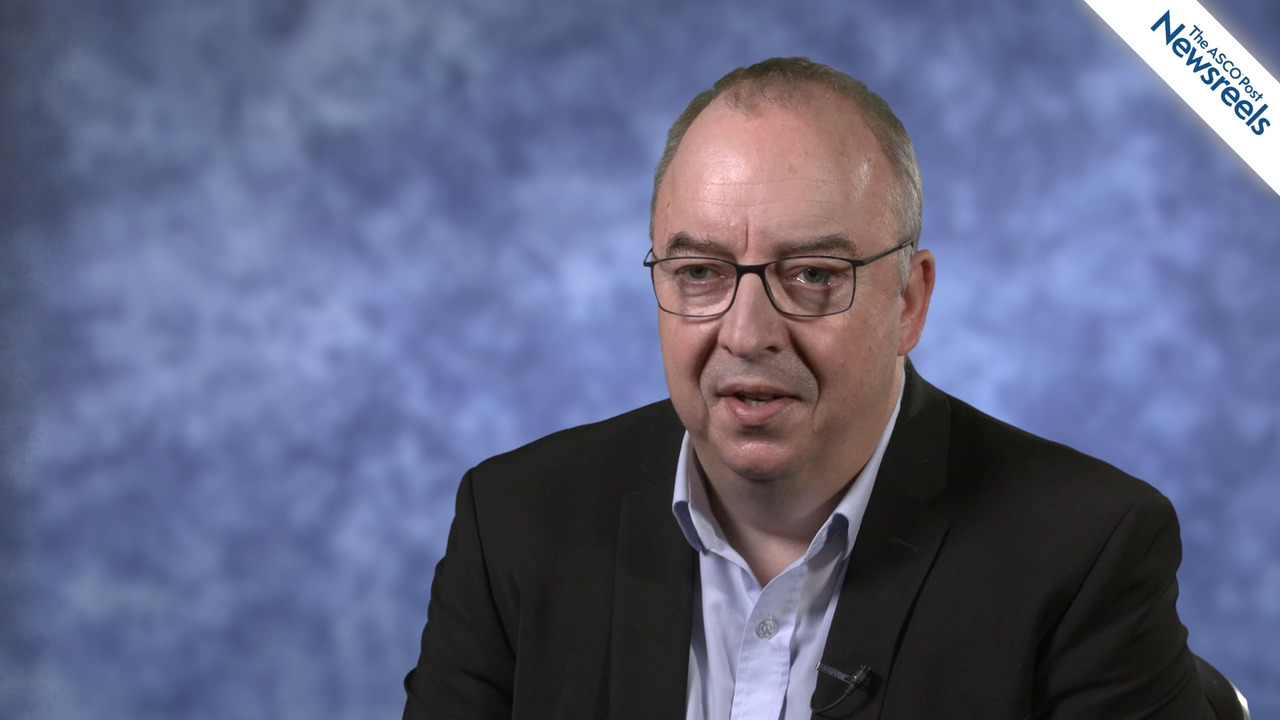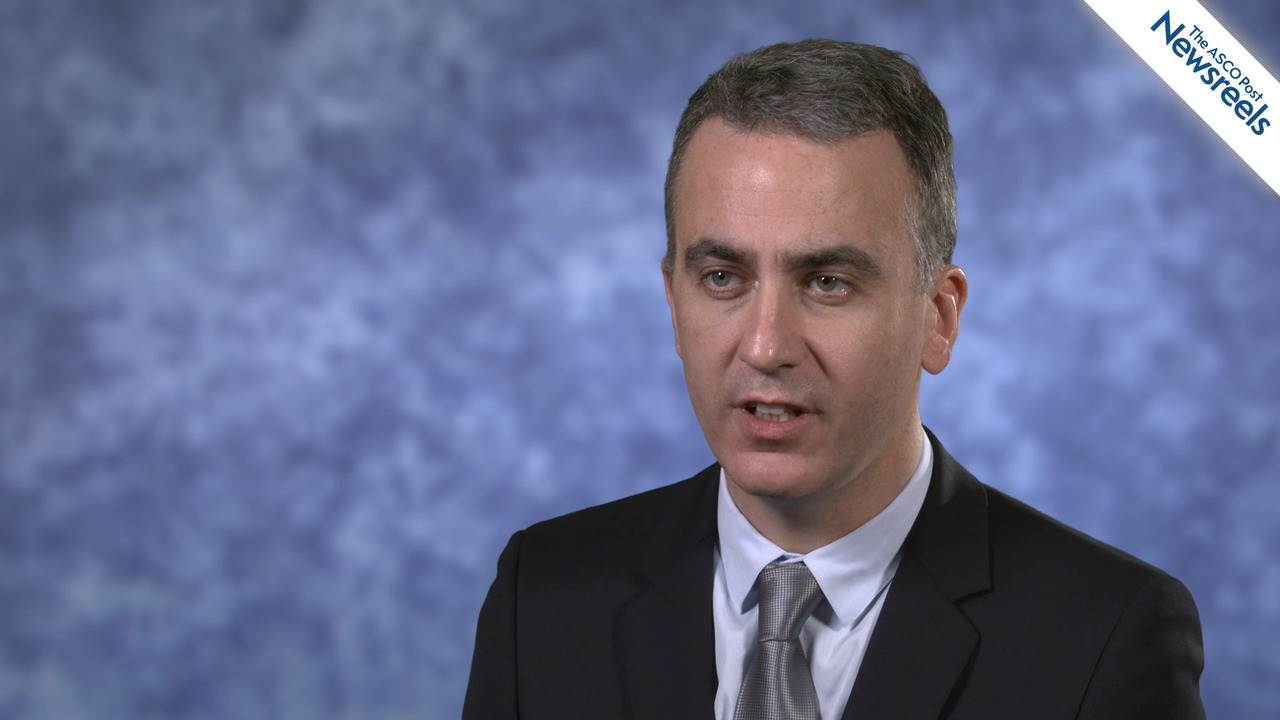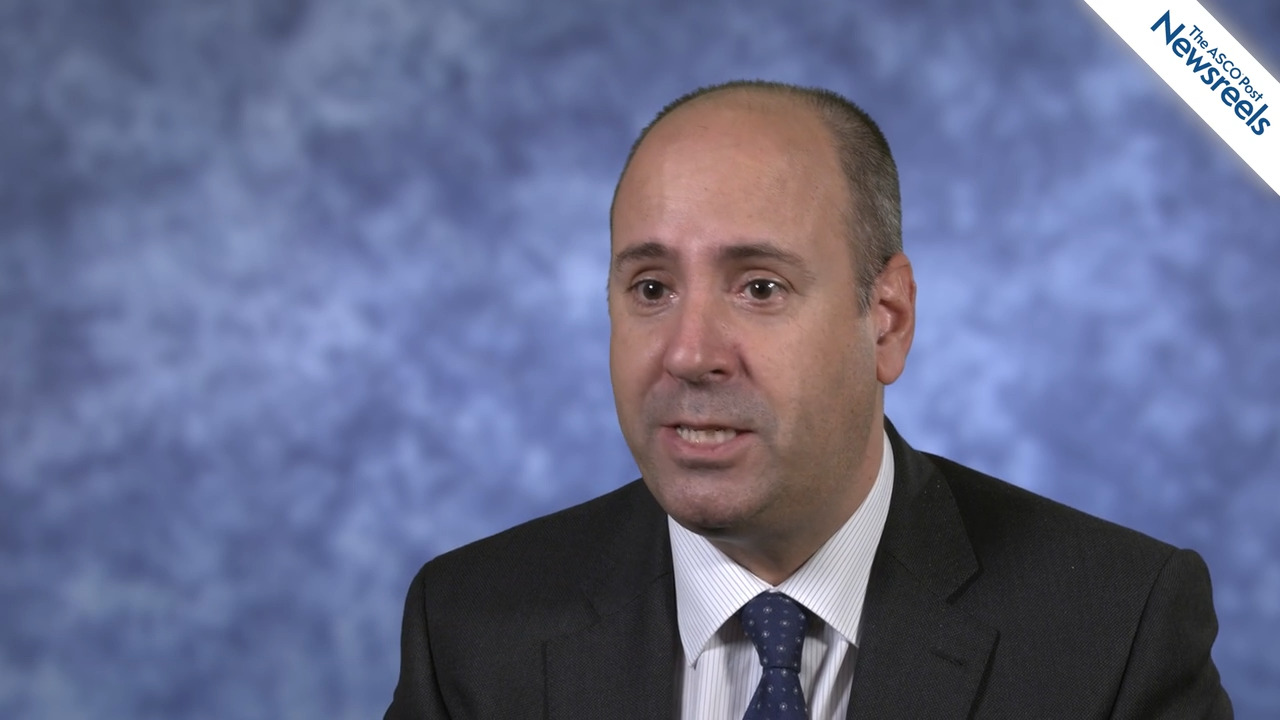2021 San Antonio Breast Cancer Symposium
EMERALD Trial: Oral Selective Estrogen Receptor Degrader as Second- or Third-Line Therapy for Advanced Breast Cancer
Use of the first investigational oral selective estrogen receptor degrader (SERD) elacestrant significantly reduced the risk of death or disease progression and lengthened progression-free survival co...
Banu Arun, MD, on Fine-Tuning Risk Assessment and Risk Reduction in Breast Cancer
Banu Arun, MD, of The University of Texas MD Anderson Cancer Center, discusses a session she moderated that included discussion of how exercise and diet may reduce the risk of breast cancer, and emerg...
Ann H. Partridge, MD, MPH, on SABCS Meeting Highlights: Expert Perspective
Ann H. Partridge, MD, MPH, of Dana-Farber Cancer Institute, discusses what she considers to be the most notable presentations at the 2021 San Antonio Breast Cancer Symposium. They include the focus on...
Lisa A. Carey, MD, on HR-Positive and HER2-Negative Advanced Breast Cancer: Overall Survival by Subtype Across Three MONALEESA Studies
Lisa A. Carey, MD, of the University of North Carolina at Chapel Hill and the Lineberger Comprehensive Cancer Center, discusses findings from a pooled analysis of the MONALEESA-2, -3, and -7 trials. A...
Charles Coombes, MD, PhD, on Hormone Receptor–Positive HER2-Negative Breast Cancer: Use of Samuraciclib Plus Fulvestrant
Charles Coombes, MD, PhD, of Imperial College, London, discusses study results on samuraciclib, a first-in-class, oral, selective inhibitor of CDK7, in combination with fulvestrant in patients with ad...
Breast Cancer Index May Predict Benefit of Extended Endocrine Therapy in Certain Patients With Hormone Receptor–Positive Disease
New data were presented at the 2021 San Antonio Breast Cancer Symposium demonstrating that the Breast Cancer Index (BCI) may predict preferential recurrence-prevention benefit from extended endocrine ...
Expert Point of View: Matthew J. Ellis, MB, BChir, PhD, FACP
The final results of the phase III PALLAS trial1 are “deeply disappointing,” said session moderator Matthew J. Ellis, MB, BChir, PhD, FACP, Professor of Medicine and Director of the Lester and Sue Smi...
Final Analysis of PALLAS Trial: No Benefit of Adjuvant Palbociclib Plus Endocrine Therapy in Early Breast Cancer
The final protocol-defined analysis of the phase III PALLAS trial confirmed the negative results of the second interim analysis, showing no benefit of palbociclib plus endocrine therapy in the adjuvan...
Expert Point of View: Hope S. Rugo, MD, FASCO
Invited discussant of the KEYNOTE-355 trial, Hope S. Rugo, MD, FASCO, one of the coauthors of the study, had presented the survival data at the 2021 European Society of Medical Oncology (ESMO) Annual...
Identifying Women With Triple-Negative Breast Cancer Who May Benefit From Pembrolizumab Plus Chemotherapy
Results of the phase III randomized KEYNOTE-355 trial showed that the addition of the PD-1 inhibitor pembrolizumab to investigator’s choice of first-line chemotherapy improved progression-free and ove...
Patricia A. Ganz, MD, on Early Breast Cancer, Olaparib, Chemotherapy, and Quality of Life
Patricia A. Ganz, MD, of the University of California, Los Angeles, discusses quality-of-life results from the phase III OlympiA study of adjuvant olaparib after (neo)adjuvant chemotherapy in patients...
Komal Jhaveri, MD, on Triple-Negative and Metastatic Breast Cancers: New Data on Neratinib, Fulvestrant, and Trastuzumab
Komal Jhaveri, MD, of Memorial Sloan Kettering Cancer Center, discusses the latest updates from the SUMMIT trial, which explored the combinations of neratinib/fulvestrant/trastuzumab and neratinib plu...
Michael Gnant, MD, on HR-Positive, HER2-Negative Early Breast Cancer: Trial Results With Palbociclib Treatment
Michael Gnant, MD, of the Medical University of Vienna, discusses phase III findings from the PALLAS study, which showed that adding 2 years of palbociclib to ongoing adjuvant endocrine therapy did no...
François-Clément Bidard, MD, PhD, on Metastatic Breast Cancer: Endocrine Therapy and Palbociclib
François-Clément Bidard, MD, PhD, of the Institut Curie, discusses phase III findings of the PADA-1 study, which showed that optimizing endocrine therapy after detecting the ESR1 mutation in patients ...
Javier Cortés, MD, PhD, on Previously Untreated Triple-Negative Breast Cancer: Pembrolizumab Plus Chemotherapy
Javier Cortés, MD, PhD, of the International Breast Cancer Center, discusses the final phase III results of KEYNOTE-355, which showed that pembrolizumab and chemotherapy improved overall and progressi...
Kevin Kalinsky, MD, on HR-Positive HER2-Negative Breast Cancer: Endocrine Therapy and Chemotherapy
Kevin Kalinsky, MD, of the Winship Cancer Institute at Emory University, discusses updated phase III results from the SWOG S1007 (RxPONDER) study of women with one to three positive lymph nodes, and h...
Patients With Hormone Receptor–Positive Breast Cancer and Emergent ESR1 Mutations May Benefit From Early Switch to Fulvestrant/Palbociclib
Among patients with hormone receptor–positive breast cancer treated with an aromatase inhibitor plus palbociclib, those who displayed a rising ESR1 mutation detected in their blood before disease prog...
PHOEBE Trial: Pyrotinib/Capecitabine vs Lapatinib/Capecitabine for Previously Treated Patients With HER2-Positive Metastatic Breast Cancer
Among previously treated patients with HER2-positive metastatic breast cancer, those who received pyrotinib plus capecitabine had longer overall survival than those who received lapatinib plus capecit...
Peter Schmid, MD, PhD, on Early-Stage Triple-Negative Breast Cancer: Neoadjuvant Treatment With Pembrolizumab and Chemotherapy
Peter Schmid, MD, PhD, of Barts Cancer Institute, discusses phase III findings from KEYNOTE-522, in which researchers found a generally consistent event-free survival benefit among patients with early...
Elacestrant May Improve Outcomes for Postmenopausal Patients With Progressive ER-Positive HER2-Negative Metastatic Breast Cancer
The investigational oral selective estrogen receptor degrader (SERD) elacestrant significantly decreased the risk of death or disease progression and increased progression-free survival compared with ...
Elacestrant May Improve Outcomes for Postmenopausal Patients With Progressive ER-Positive HER2-Negative Metastatic Breast Cancer
The investigational oral selective estrogen receptor degrader (SERD) elacestrant significantly decreased the risk of death or disease progression and increased progression-free survival compared with ...
PALLAS Trial: Addition of Adjuvant Palbociclib to Endocrine Therapy in Early HR-Positive, HER2-Negative Breast Cancer
As reported at the 2021 San Antonio Breast Cancer Symposium (Abstract GS1-07) and simultaneously in the Journal of Clinical Oncology by Michael Gnant, MD, and colleagues, the final analysis of the pha...
Single-Cell Spatial Analysis May Help to Predict Response to Neoadjuvant Atezolizumab in Patients With Triple-Negative Breast Cancer
A next-generation technology that allows the study of protein expression at the single-cell level and the location of the cells within the tumor microenvironment was feasible and provided information ...
Molecular Tumor Profiling May Improve Treatment Matching for Patients With Metastatic Breast Cancer
The use of multigene sequencing and SNP array as a therapeutic decision tool improved the outcomes of patients with metastatic breast cancer if the patients carried alterations classified in the I/II ...
I-SPY2 Study Finds Tumor Biology Is a More Significant Factor Than Race in Predicting Response to Breast Cancer Treatment
Data analysis from the I-SPY2 clinical trial found that among women with high-risk breast cancer, race did not significantly affect several key measures of breast cancer treatment outcomes, including ...
Study Examines Rates of Lymphedema in Black and White Patients With Breast Cancer
Black women had a 3.85-fold increased risk of developing lymphedema following treatment for breast cancer compared to White women, according to the results from a study by Barrio et al being presented...
